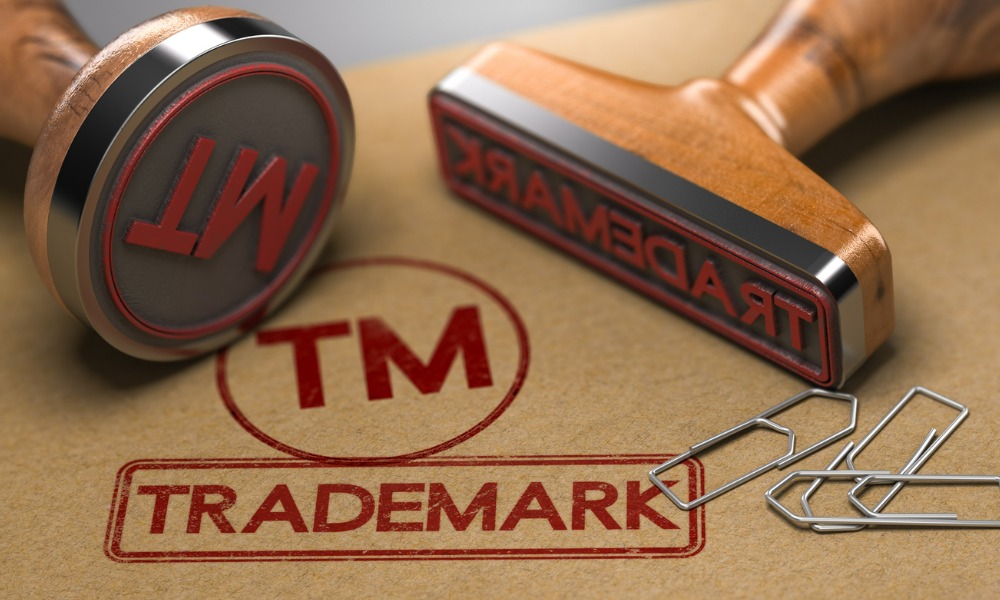This is my last column for 2014. One of my columns addressed some of the relevant provisions of lawyers’ competence in the Rules of Professional Conduct, as they relate to technology.
These amended rules contain extensive changes based on the Federation of Law Societies’ Model Code of Professional Conduct. They were adopted by the LSUC on Oct. 24, 2013, and came into force Oct. 1, 2014.
Since the rules have recently changed, it makes sense to revisit what I believe to be some of the applicable ones.
Rule 3.1-1 defines a “competent lawyer” as one who is able to, among other things, investigate facts and conduct legal research:
“3.1-1 In this rule,
‘competent lawyer’ means a lawyer who has and applies relevant knowledge, skills and attributes in a manner appropriate to each matter undertaken on behalf of a client including:
…(b) investigating facts, identifying issues, ascertaining client objectives, considering possible options, and developing and advising the client on appropriate courses of action,
(c) implementing, as each matter requires, the chosen course of action through the application of appropriate skills, including,
(i) legal research;…”
Rule 3.1-1(e) requires a competent lawyer to perform these obligations “conscientiously, diligently, and in a timely and cost-effective manner.”
LibraryCo, the non-profit organization that oversees all law libraries in Ontario, seems to have recognized the importance of technology to the delivery of legal research to lawyers across the province.
Technology is vital to lawyers’ competence, how they practise law and deliver legal services to their clients. This relates to many aspects of the practice of law, including at least the following:
• managing a lawyer’s practice;
• communicating internally and externally;
• conducting effective and efficient legal research;
• conducting effective and efficient online factual research;
• drafting legal documents;
• processing cases (e-discovery); and,
• presenting cases in court, mediation, or arbitration.
Rule 3.1-1(i) requires a competent lawyer to “effectively” manage his or her “practice” — with my emphasis on the words “practice” and “effectively”:
“‘competent lawyer’ means a lawyer who has and applies relevant knowledge, skills and attributes in a manner appropriate to each matter undertaken on behalf of a client including,
(i) managing one’s practice effectively;”
This is important. How a lawyer manages his or her practice constitutes the lawyer’s competence. It is no longer confined to substantive or procedural knowledge or skills. The required standard of managing a practice in this rule is noteworthy: it has to be managed “effectively.”
Very few, if any, legal practices operate today without the use of some form of technology. Technology is not a luxury or an option in a lawyer’s practice and the delivery of legal services to the public.
Ontario’s Law Society Act sets out the threshold of professional competence standards. Section 41 states as follows (the underlines are mine):
“41. A licensee fails to meet standards of professional competence for the purposes of this Act if,
(a) there are deficiencies in,
(i) the licensee’s knowledge, skill or judgment,
(ii) the licensee’s attention to the interests of clients,
(iii) the records, systems or procedures of the licensee’s professional business, or
(iv) other aspects of the licensee’s professional business; and
(b) the deficiencies give rise to a reasonable apprehension that the quality of service to clients may be adversely affected.”
I note subsections (a)(iii), (iv), and (b), in particular. They address the “systems,” “procedures,” and “other aspects” of the lawyer’s business, and how these factors impact the “quality of service” to clients.
More than a decade or so ago, the LSUC created a basic set of guidelines in relation to the use of technology in the practice of law, titled the “Technology Practice Management Guideline.” To an extent, these guidelines are outdated, but many of them are still applicable and should be reviewed.
It may be startling to some that the Law Society Act, the overall governing legislation of lawyers in Ontario, recognizes that our practices are “professional businesses.” It is what they are; increasingly and overwhelmingly.
These provisions of the LSA also recognize the manner in which we, as lawyers, manage our professional businesses and how that impacts the quality of the professional services we provide to our clients.
Perhaps this sounds trite, but linking how we run our practices with the quality of the services we provide to clients should not be overlooked: it is legally defined as the threshold for our professional competence; the essence of how we operate.
In fact, I would argue how we operate extends beyond our services to clients. It goes broader. Our efficiency and effectiveness plays a vital role in access to justice: our ability as lawyers to deliver cost-effective and competitive legal services in a way that promotes the public’s access to legal services or the courts.
This necessarily includes the application of technology in our practices.
Thank you for reading my column throughout this year. I appreciate your attention and time and hope I have provided you with some ideas to explore in relation to your use of legal technology. Happy Holidays to all our readers and our legal profession across Canada.
These amended rules contain extensive changes based on the Federation of Law Societies’ Model Code of Professional Conduct. They were adopted by the LSUC on Oct. 24, 2013, and came into force Oct. 1, 2014.
Since the rules have recently changed, it makes sense to revisit what I believe to be some of the applicable ones.
Rule 3.1-1 defines a “competent lawyer” as one who is able to, among other things, investigate facts and conduct legal research:
“3.1-1 In this rule,
‘competent lawyer’ means a lawyer who has and applies relevant knowledge, skills and attributes in a manner appropriate to each matter undertaken on behalf of a client including:
…(b) investigating facts, identifying issues, ascertaining client objectives, considering possible options, and developing and advising the client on appropriate courses of action,
(c) implementing, as each matter requires, the chosen course of action through the application of appropriate skills, including,
(i) legal research;…”
Rule 3.1-1(e) requires a competent lawyer to perform these obligations “conscientiously, diligently, and in a timely and cost-effective manner.”
LibraryCo, the non-profit organization that oversees all law libraries in Ontario, seems to have recognized the importance of technology to the delivery of legal research to lawyers across the province.
Technology is vital to lawyers’ competence, how they practise law and deliver legal services to their clients. This relates to many aspects of the practice of law, including at least the following:
• managing a lawyer’s practice;
• communicating internally and externally;
• conducting effective and efficient legal research;
• conducting effective and efficient online factual research;
• drafting legal documents;
• processing cases (e-discovery); and,
• presenting cases in court, mediation, or arbitration.
Rule 3.1-1(i) requires a competent lawyer to “effectively” manage his or her “practice” — with my emphasis on the words “practice” and “effectively”:
“‘competent lawyer’ means a lawyer who has and applies relevant knowledge, skills and attributes in a manner appropriate to each matter undertaken on behalf of a client including,
(i) managing one’s practice effectively;”
This is important. How a lawyer manages his or her practice constitutes the lawyer’s competence. It is no longer confined to substantive or procedural knowledge or skills. The required standard of managing a practice in this rule is noteworthy: it has to be managed “effectively.”
Very few, if any, legal practices operate today without the use of some form of technology. Technology is not a luxury or an option in a lawyer’s practice and the delivery of legal services to the public.
Ontario’s Law Society Act sets out the threshold of professional competence standards. Section 41 states as follows (the underlines are mine):
“41. A licensee fails to meet standards of professional competence for the purposes of this Act if,
(a) there are deficiencies in,
(i) the licensee’s knowledge, skill or judgment,
(ii) the licensee’s attention to the interests of clients,
(iii) the records, systems or procedures of the licensee’s professional business, or
(iv) other aspects of the licensee’s professional business; and
(b) the deficiencies give rise to a reasonable apprehension that the quality of service to clients may be adversely affected.”
I note subsections (a)(iii), (iv), and (b), in particular. They address the “systems,” “procedures,” and “other aspects” of the lawyer’s business, and how these factors impact the “quality of service” to clients.
More than a decade or so ago, the LSUC created a basic set of guidelines in relation to the use of technology in the practice of law, titled the “Technology Practice Management Guideline.” To an extent, these guidelines are outdated, but many of them are still applicable and should be reviewed.
It may be startling to some that the Law Society Act, the overall governing legislation of lawyers in Ontario, recognizes that our practices are “professional businesses.” It is what they are; increasingly and overwhelmingly.
These provisions of the LSA also recognize the manner in which we, as lawyers, manage our professional businesses and how that impacts the quality of the professional services we provide to our clients.
Perhaps this sounds trite, but linking how we run our practices with the quality of the services we provide to clients should not be overlooked: it is legally defined as the threshold for our professional competence; the essence of how we operate.
In fact, I would argue how we operate extends beyond our services to clients. It goes broader. Our efficiency and effectiveness plays a vital role in access to justice: our ability as lawyers to deliver cost-effective and competitive legal services in a way that promotes the public’s access to legal services or the courts.
This necessarily includes the application of technology in our practices.
Thank you for reading my column throughout this year. I appreciate your attention and time and hope I have provided you with some ideas to explore in relation to your use of legal technology. Happy Holidays to all our readers and our legal profession across Canada.







